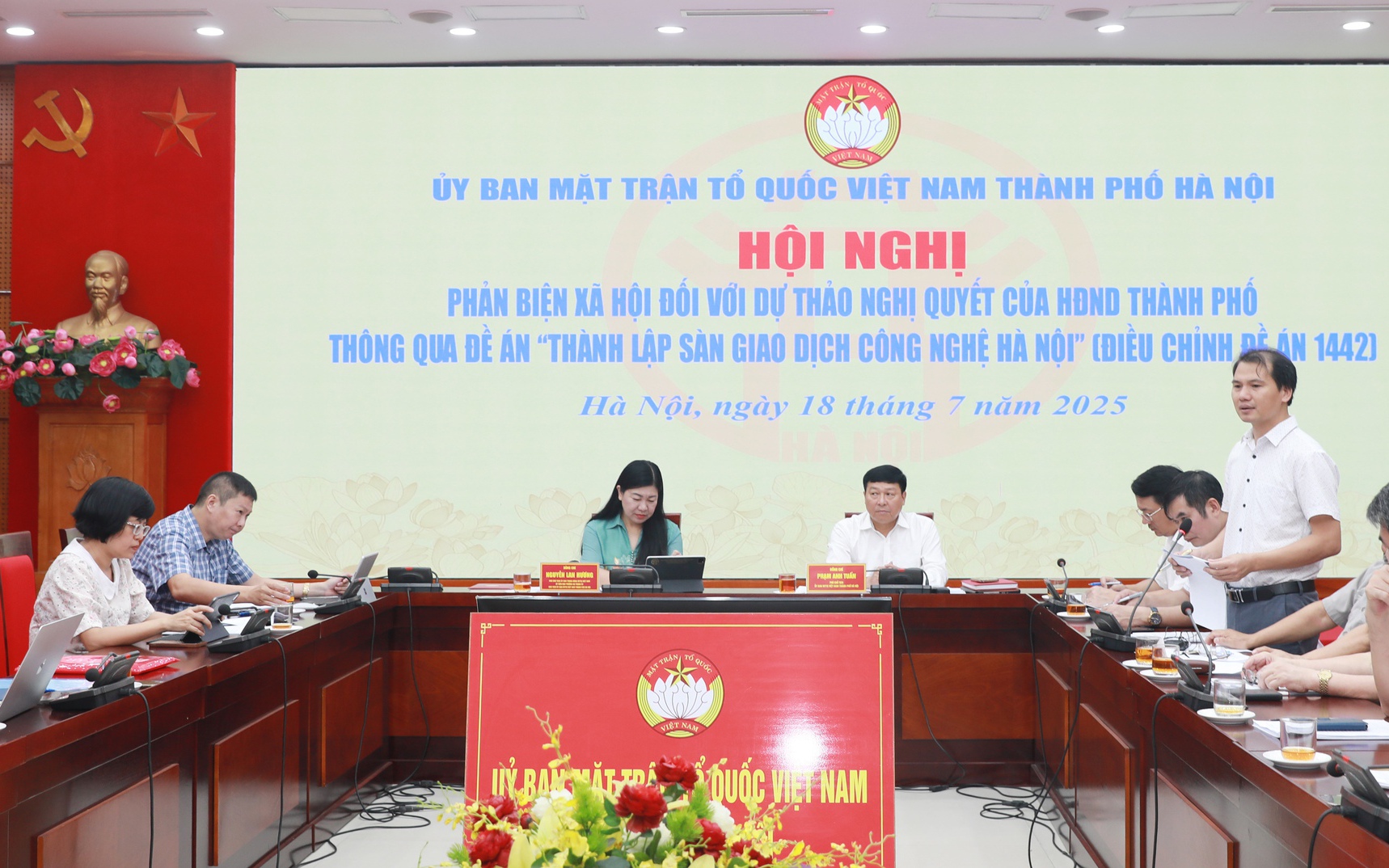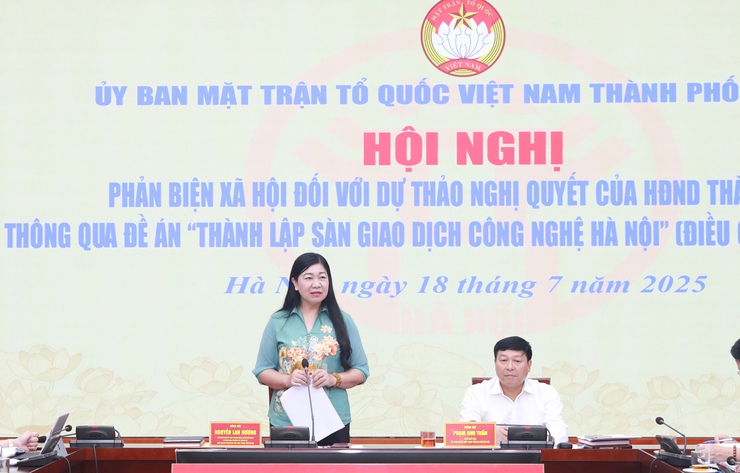At the event, Phan Van Phuc, Deputy Director of the Hanoi Department of Science and Technology, reported that the city has long paid attention to the idea of investing in a technology exchange.

Overview of the event.
However, Phuc emphasized that the model for the Hanoi Technology Exchange requires further research, adjustments, and refinements to match current development trends and practical needs.
He also stressed the importance of leveraging major opportunities created by key policy frameworks such as the Politburo's Resolution No. 57-NQ/TW and the National Assembly's Resolution No. 193/2025/QH15.
These resolutions support pilot mechanisms and special policies to accelerate scientific and technological innovation, national digital transformation, and the development of a legal framework unique to Hanoi under the Capital Law.
The proposed technology exchange aims to ensure long-term efficiency, sustainability, and international integration. Establishing this exchange, Phuc noted, is an urgent and essential step. Once operational, it will not only serve as a state management tool but also play a practical role in driving innovation, commercializing research outcomes, and connecting with global technology networks.
The draft proposal clearly defines its objectives, functions, and target groups. These include technology providers, those in need of technological solutions, and managing authorities.
The proposal recommends that the exchange operate under a "public investment, private management" model. In this structure, the government would finance the infrastructure and select a private enterprise through a bidding process to operate and provide services.
Commenting on the draft, experts and scientists agreed that passing the resolution to establish the Hanoi Technology Exchange is an urgent necessity. It addresses current demands for advancing the science and technology market, commercializing technological products, and fostering innovation.

Nguyen Lan Huong, Chairwoman of the Vietnam Fatherland Front Committee of Hanoi.
Nguyen Tien Dinh, former Deputy Minister of Home Affairs, highlighted that Hanoi is the political and administrative center of the country, as well as a major hub for culture, education, science, economy, and international exchange. However, he noted that the city's science and technology sector has not yet achieved the breakthroughs needed to become a key driver of socioeconomic development.
Dinh affirmed that the Hanoi People's Council's adoption of a resolution to establish the technology exchange is highly necessary. He believed the exchange would make a significant contribution to strengthening the city's technology market.
According to Dinh, the draft resolution falls within the authority granted by the Law on the Organization of Local Government. However, he noted that the draft needs to clearly define Hanoi’s role in investing in infrastructure and technical facilities for the exchange.
He questioned whether these assets, once operated under a joint-stock company model with the Department of Science and Technology representing the city as a shareholder, would be considered capital contributions. Dinh also raised concerns about safeguarding public assets and clarifying responsibilities for upgrades or repairs once the infrastructure deteriorates.
Le Van Hoat, a member of the Advisory Council on Democracy and Law, remarked that some sections of the draft were unclear or not well structured. He suggested that certain proposed provisions should be reviewed more carefully.
Hoat recommended expanding the focus beyond technology products to include scientific research outputs and other science and technology innovations. He also advised reconsidering the proposed tax incentives, which include corporate income tax exemptions for the managing enterprise (Hanoi Technology Exchange Joint Stock Company) and other organizations or businesses operating on the exchange, particularly those focused on innovation, technology startups, or technology transfer.
During the conference, delegates and scientists put forward additional recommendations. These included digitizing the exchange platform, incorporating a training component to develop specialized personnel, and prioritizing pilot implementation in cutting-edge sectors such as wastewater treatment and urban technology. They also called for enhanced support for commercialization, stronger technology networks, and deeper public-private partnerships.
In conclusion, Nguyen Lan Huong, Chairwoman of the Vietnam Fatherland Front Committee of Hanoi, acknowledged and highly valued the contributions of experts and scientists. She affirmed that key feedback would be synthesized and used to refine and implement the resolution effectively.
Huong clarified that this resolution is a specific policy instrument rather than a legal regulation. She urged the Department of Science and Technology to follow the procedures applicable to such tailored resolutions.
To ensure the Hanoi Technology Exchange operates effectively, Huong emphasized the need for transparency, open access to information, and fair opportunities for all stakeholders. She called for clearer performance indicators for the exchange and prioritized support for technology products.
In addition, she stressed the importance of addressing environmental sustainability, social welfare, and public interest. She also advocated for proper investment supervision to prevent waste or mismanagement of public assets.
Finally, Huong underlined the need for sound operational mechanisms, collaboration with international science and technology exchanges, integration of advanced technologies, and the creation of channels for receiving feedback from citizens and scientists in Hanoi and across the country.